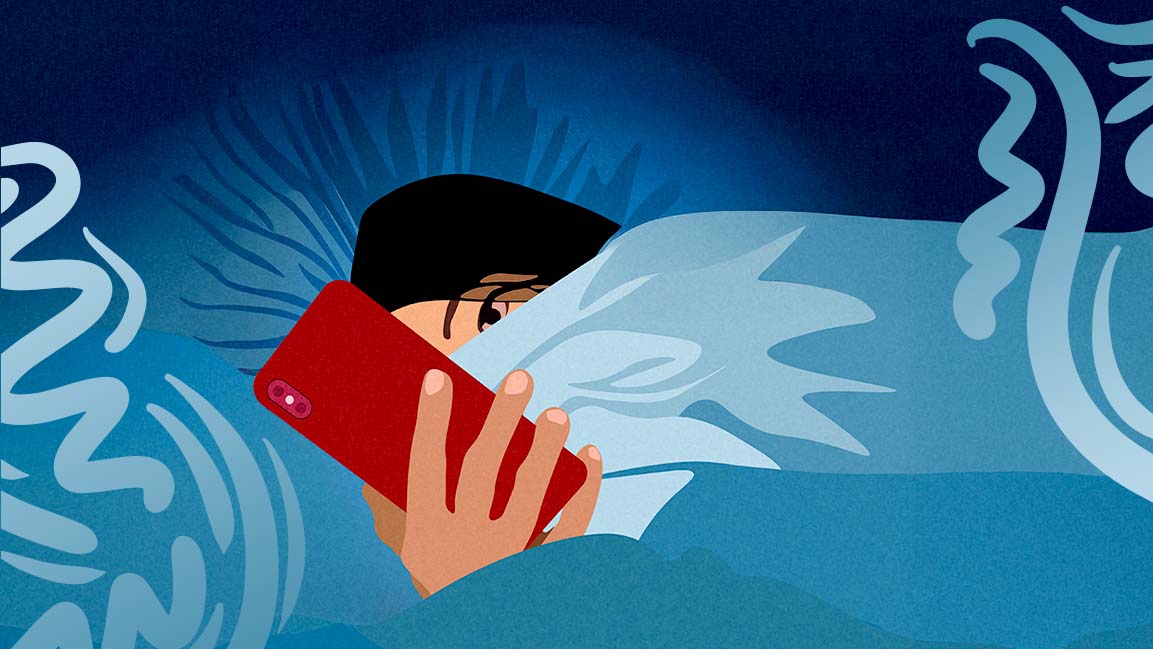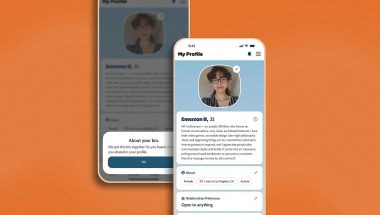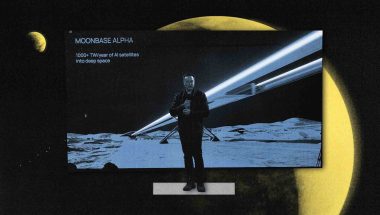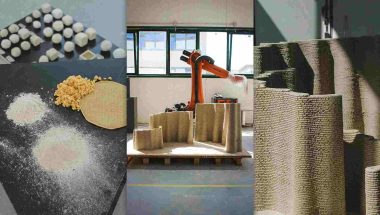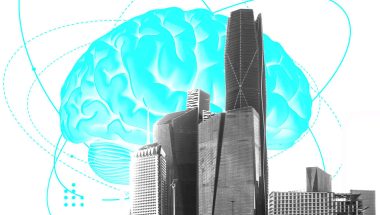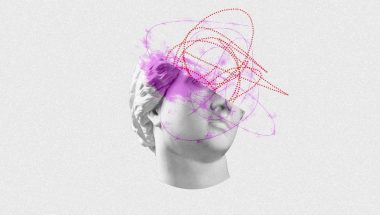- | 8:00 am
6 things to know about OpenAI’s Mira Murati, the most interesting person in tech right now
Murati, OpenAI’s chief technology officer, is the person shaping ChatGPT, Dall-E, and the future of AI.
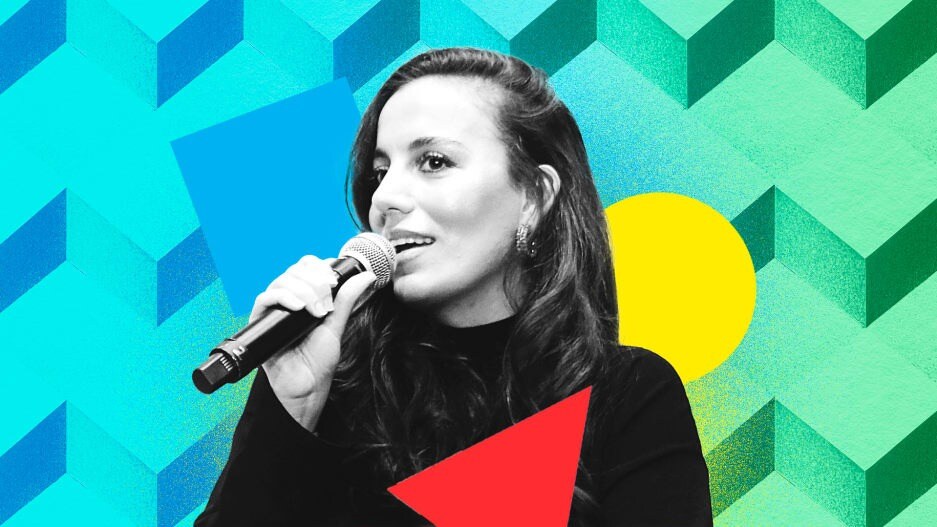
ChatGPT and Dall-E might get the lion’s share of the spotlight, but Mira Murati may be the real star of OpenAI.
Murati is chief technology officer at OpenAI, the startup behind ChatGPT—the most advanced AI chatbot ever to be deployed to a mass audience—and Fast Company’s Most Innovative Company of 2023.
Fast Company senior writer Ainsley Harris recently visited OpenAI and learned how Murati and the company innovate (read the full story here).
Born in Albania and a veteran of Tesla, where she led development of the Model X, Murati has been with OpenAI since 2018. While the world gawks at the technology and argues about its potential, she and her team are focused on improving OpenAI’s products. After all, billions of dollars are riding on the success of their technology, which could be Silicon Valley’s most disruptive since the iPhone.
The honing of the tech, as well as the global conversation around it, is likely to go on for quite a while. In the meantime, here are a few things to know about Murati.
SHE HAS A LONG HISTORY OF INFLUENCING HOW PEOPLE INTERACT WITH NEW TECHNOLOGY
Murati’s interest in AI started back in 2013, when she joined Tesla. At the time, the company was releasing early versions of Autopilot, its AI-enabled driver-assistance software, and working on AI-enabled robots for its factories. That led Murati to consider other real-world applications.
She moved over to Leap Motion in 2016 to work on the startup’s augmented reality system to replace keyboards. As VP of product and engineering, she hoped to make interacting with a computer “as intuitive as playing with a ball,” she tells Fast Company’s Harris. But she soon realized the VR-based technology wasn’t close to being ready for a mass audience.
As Murati considered her next move, Harris writes, she came to the conclusion that a “massive advancement in technology” would have to play a role in solving the world’s biggest challenges. That led to her joining OpenAI in 2018, and her oversight of the rollouts of Dall-E and ChatGPT.
SHE’S ONE OF THE PRIMARY ADVOCATES OF PUBLIC TESTING
While Google has, for the most part, kept its AI research under wraps in a lab, and the capabilities of Baidu’s Ernie chatbot (out of China) are still largely unknown, OpenAI’s products are widely available.
Murati is passionate about testing these products with the general public. “You could make technological progress in a vacuum without real-world contacts,” she tells Fast Company. “But then the question is, Are you actually moving in the right direction?”
Building artificial general intelligence (AGI) solely within the confines of the lab, she argues, can make the societal shock even more disturbing when it does come out. Conditioning the company’s large language models through reinforcement learning with human feedback is a more effective method of addressing any challenges in how the AI performs, and a way to include the public in the conversation.
SHE’S IN FAVOR OF REGULATION FOR AI
The rapid adoption of and discussion about artificial intelligence has stoked fears about the technology’s capabilities. Pot stirrers might point to doomsday Skynet-like examples, but more rational and realistic concerns include the ability of bad actors to harness generative AI to spread misinformation or agendas that are harmful to certain groups of people.
Murati doesn’t address specific use cases, but she has been outspoken that the industry needs regulation. “We have philosophers and ethicists at OpenAI, but I really think there are big societal questions that shouldn’t be in the hands of technologists alone,” she told The Daily Show last year.
Earlier this month, she doubled down on that, telling Time, “This is a unique moment in time where we do have agency in how it shapes society. And it goes both ways: The technology shapes us and we shape it. . . . There are also a ton of questions around societal impact, and there are a lot of ethical and philosophical questions that we need to consider. And it’s important that we bring in different voices, like philosophers, social scientists, artists, and people from the humanities.”
SHE’S FOCUSED ON HOW HUMANS WILL INTERACT WITH AI
Despite her confidence in OpenAI’s capabilities, Murati doesn’t seem to share OpenAI CEO Sam Altman’s interest in exploring the idea of sentient AGI. While he has a flair for generating headlines by alluding to science fiction horror stories with AGI villains, Murati characterizes consciousness as a philosophical idea, rather than a scientific one (“It’s a bit of a different vector,” she says).
Indeed, she would like to reimagine the Turing test, to determine if a computer can think like a human, to incorporate a “broad spectrum of cognitive tasks.” But above all, she wants OpenAI’s systems to be learning from real, live humans.
SHE’S HOPING THE NEXT GENERATION OF GPT CAUSES LESS OF A FRENZY
Just two months after its launch, ChatGPT reached 100 million active monthly users, according to analytics firm Similarweb. That made it the fastest-growing consumer application in history. (TikTok, for comparison, took nine months to hit those numbers and Instagram took two and a half years.)
As GPT-4, OpenAI’s next large language model, prepares to roll out, Murati knows the technology will be under an even bigger microscope, but when asked about it, she tells Fast Company, “I think less hype would be good.”
That’s unlikely. With GPT-4, Murati sees a chance to “broaden opportunities for people,” including showing educators that generative AI is a lot more than a way for students to cheat when they have a paper due. Instead, it can be a tool to help write lesson plans and assist student learning in new ways.
“With ChatGPT, you can have this infinite interaction and have it teach you about complex topics in a way that’s based on your context,” Murati says. “It’s kind of like a personal tutor.”
SHE’S GOT ECLECTIC POP CULTURE TASTES
One of Murati’s favorite movies centers on a rogue AI that kills everyone. “2001: A Space Odyssey continues to stir my imagination with its imagery and music, especially in the breathtaking sequence where the space shuttle docks accompanied by the waltz of Johann Strauss’s Blue Danube Waltz,” she told Time.
Other pop culture inspirations include Radiohead’s “Paranoid Android” (“Not the most uplifting, but beautiful and thought-provoking,” she told the publication) and Duino Elegies, a collection of poems by Rainer Maria Rilke.















